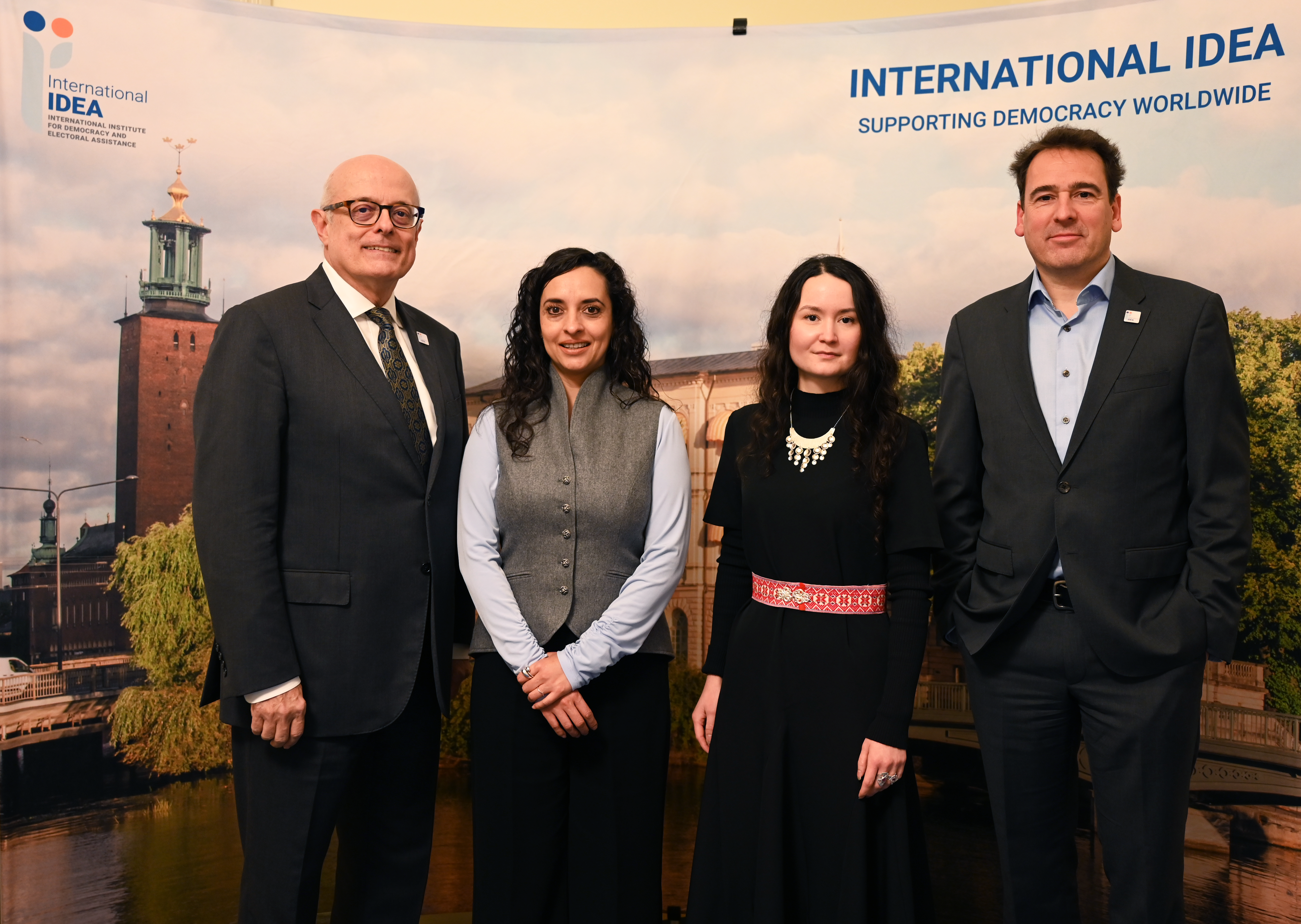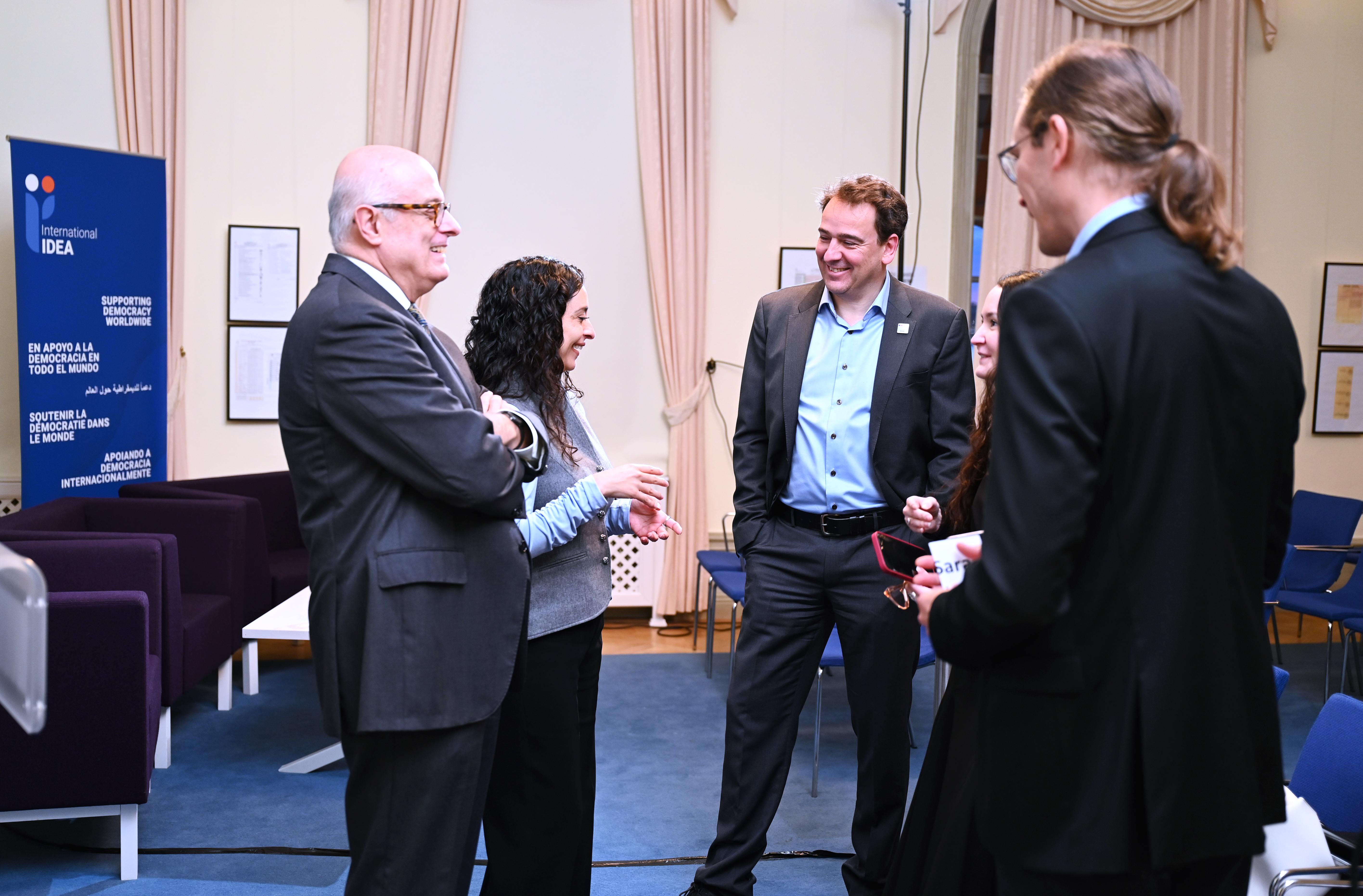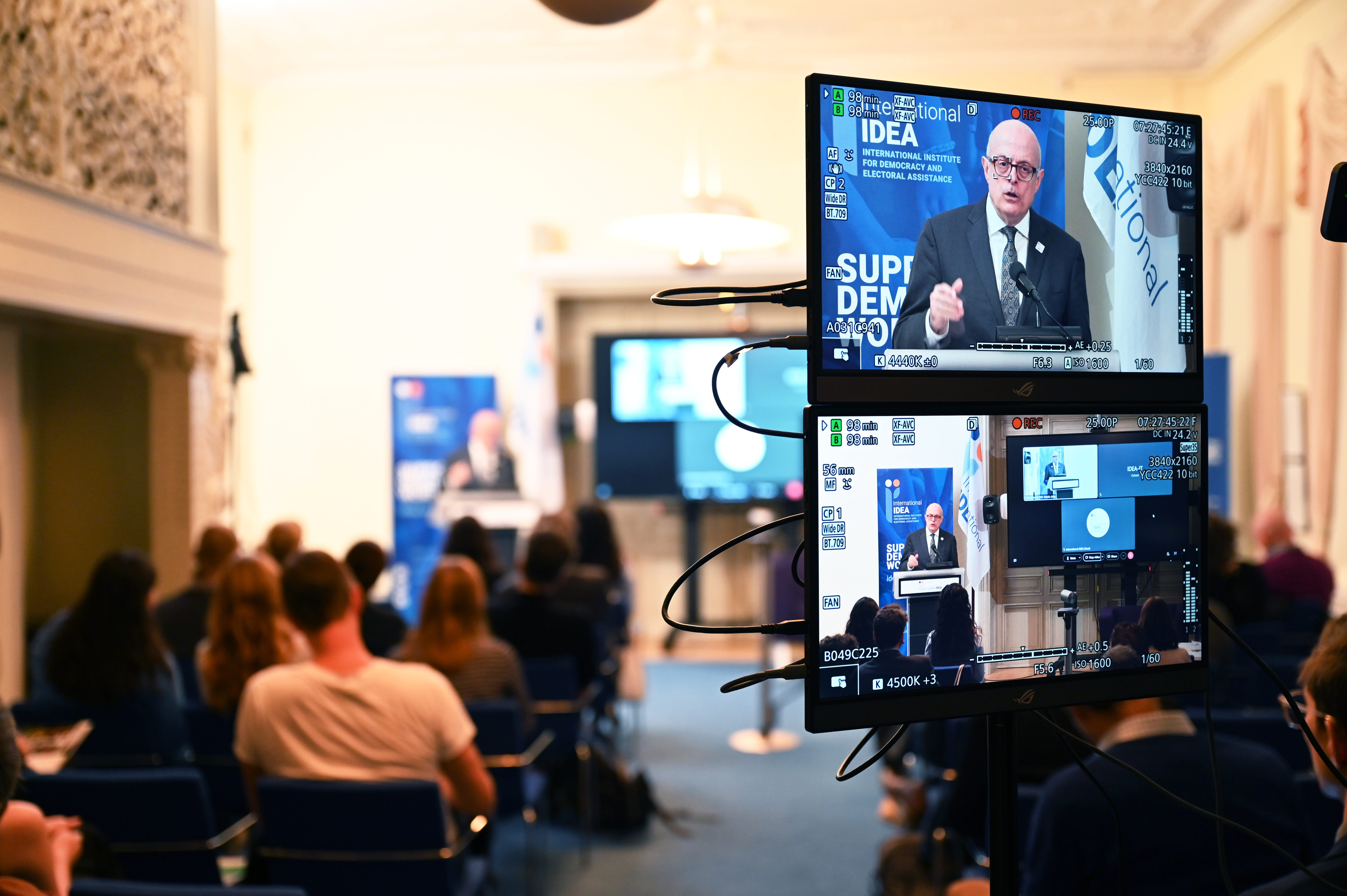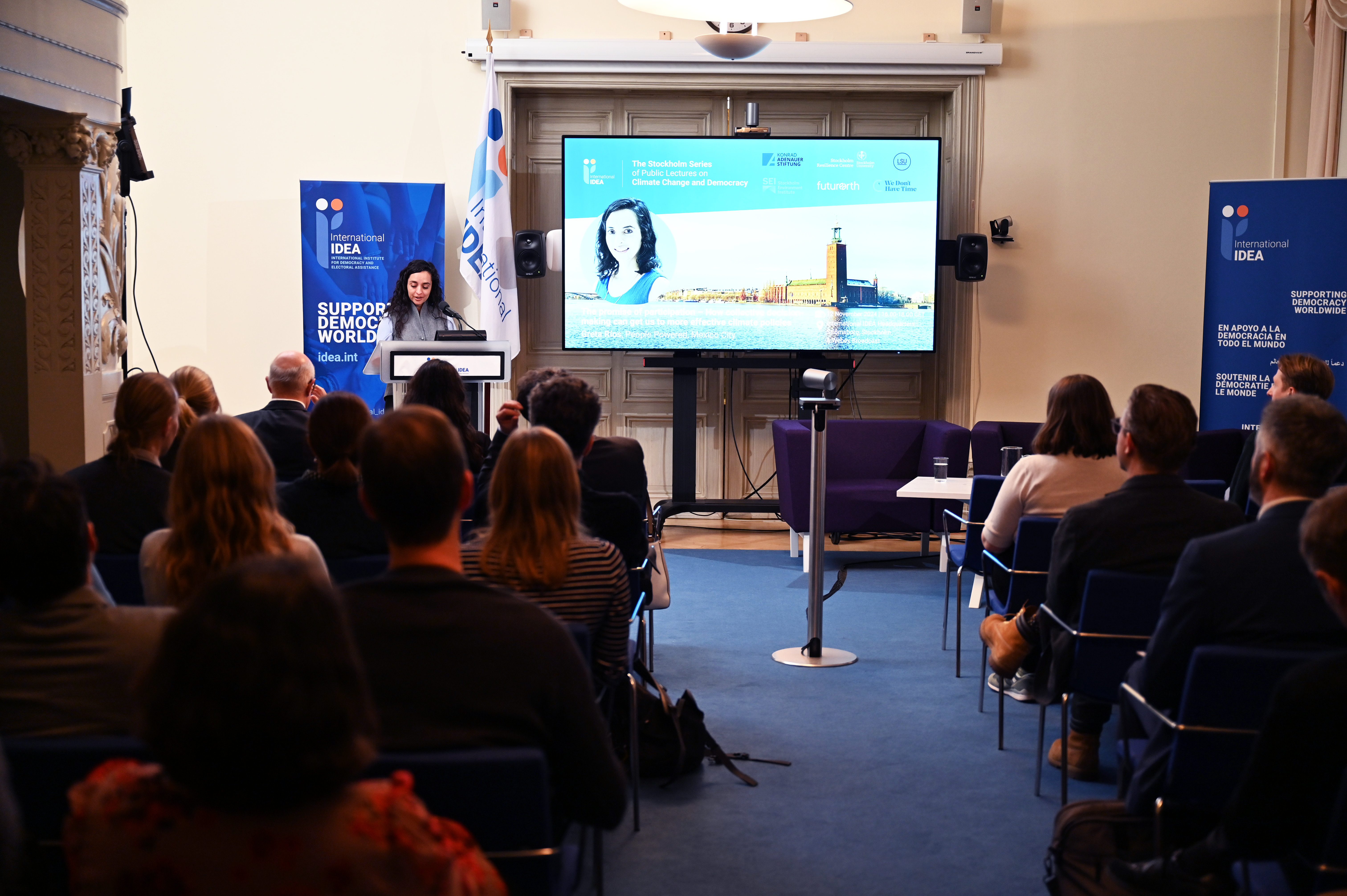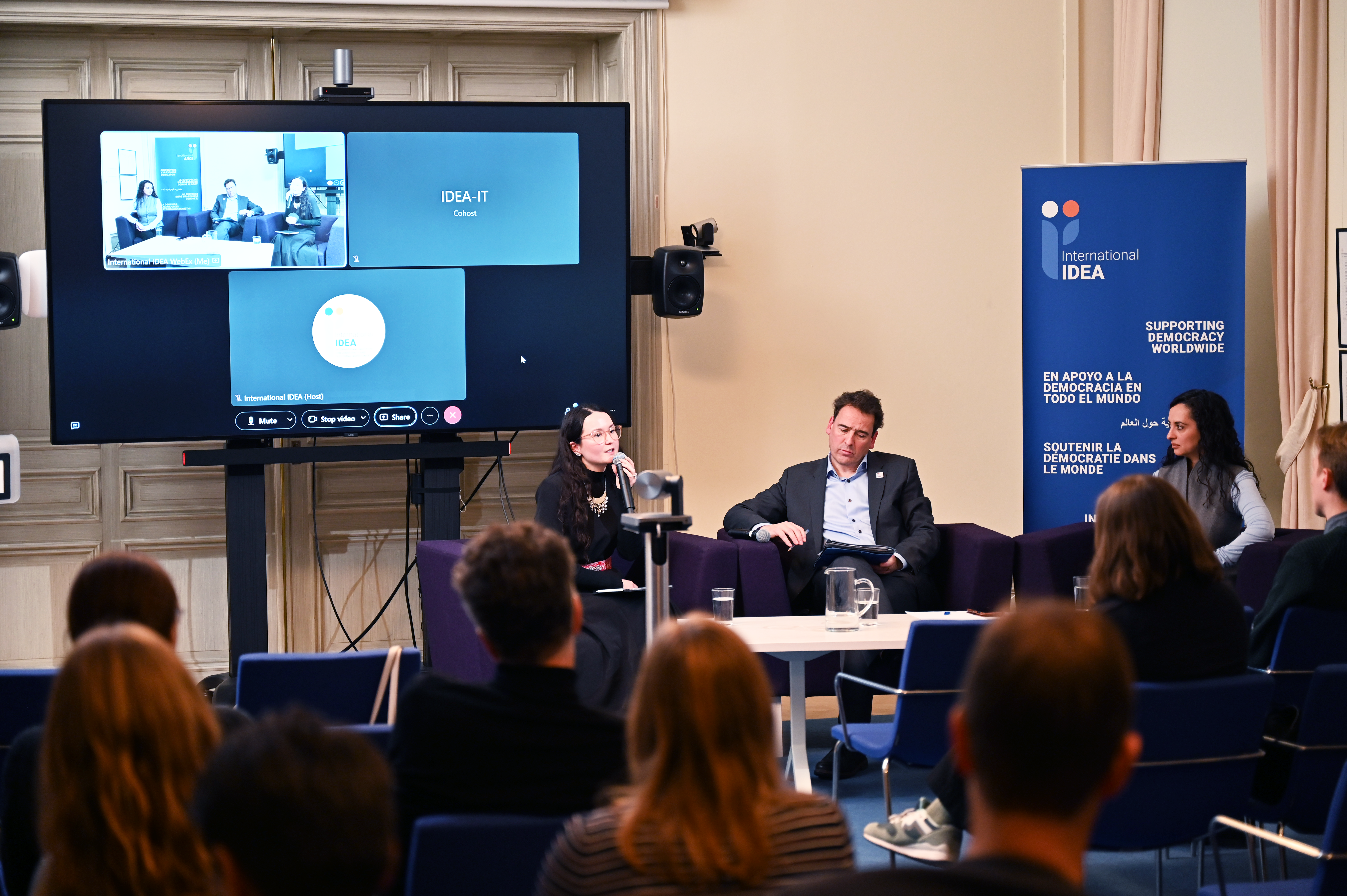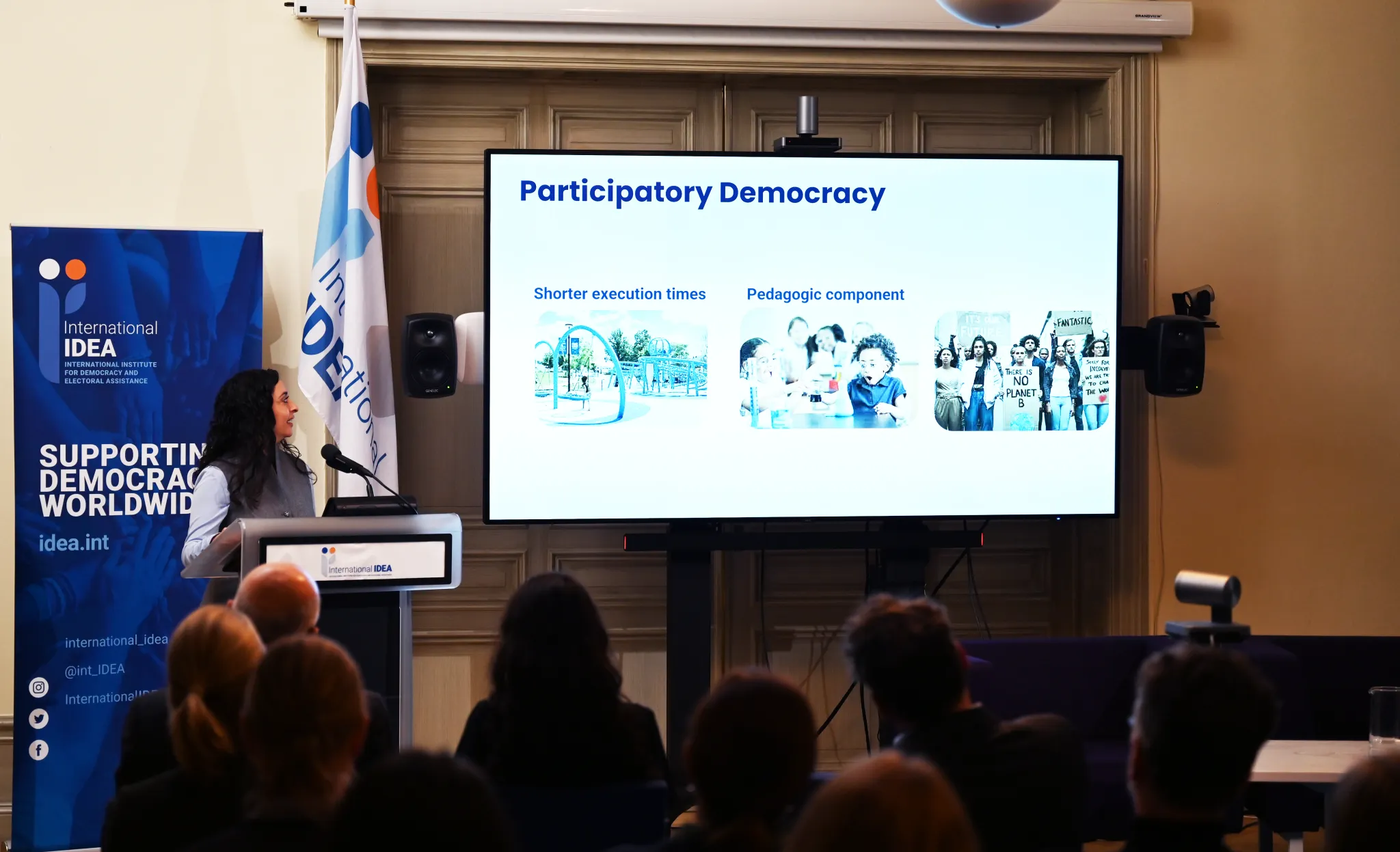
The video recording and the lecture manuscript are now available.
Greta Ríos is the Co-Executive Director of People Powered, a global hub for participatory democracy. In her Stockholm Series lecture, Greta shared three stories of how people around the world are using participatory democracy to solve problems with their governments and communities in creative and effective ways. Drawing on projects in Mexico, Zimbabwe and Uganda, she illustrated how the different forms of participatory democracy such as legislative theatres can empower people to address climate change at the local level.
She concluded with an optimistic example from Santa Ana, Mexico, where a participatory budgeting process not only gave everyone a chance to express their views and created agency but also helped the community ensure that the forest around the village grew back again.
The event was opened by Dr Massimo Tommasoli, Director of Global Programmes at International IDEA, and followed by a conversation with Sara-Elvira Kuhmunen, President of the Sámi Youth Organization Sáminuorra and LSU Board Member and Greta Ríos, moderated by Matthias Jäger, Head of Programme, Climate Change and Democracy, International IDEA.
The discussion touched on the impact of climate change on Sámi culture and livelihoods, and how Sámi youth in particular are involved in political decision-making processes. It emphasized that meaningful and accountable participation is necessary to keep people's trust and draw on their knowledge to find local climate solutions.
In the context of COP29, the panel discussed both the progress made and the remaining challenges, such as the risks of tokenism in the involvement of Indigenous people and their knowledge in multilateral fora.
